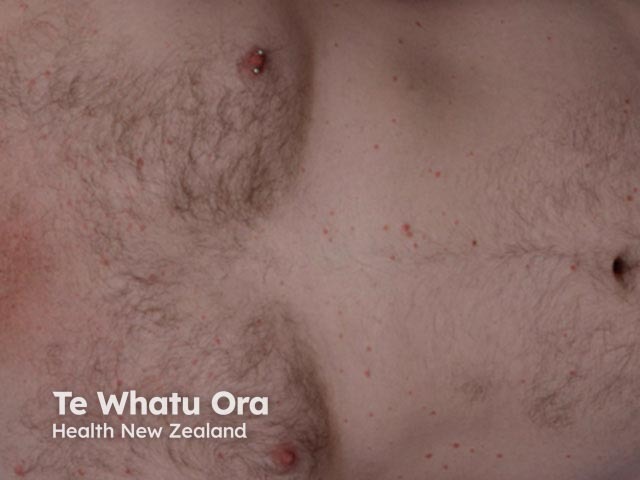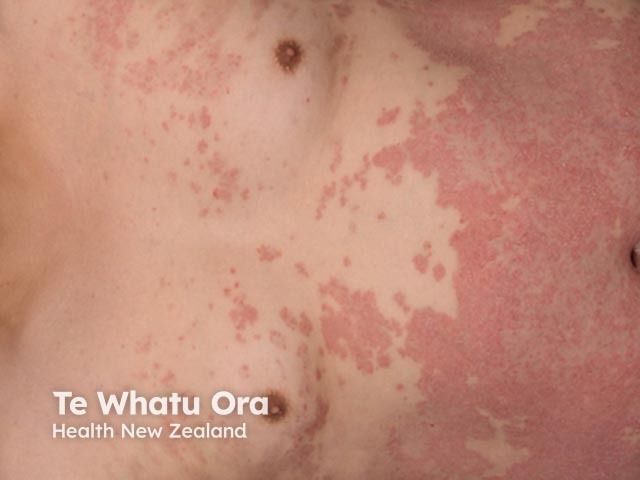Main menu
Common skin conditions

NEWS
Join DermNet PRO
Read more
Quick links
Dr Sam MacGill, Medical Student, University of Otago, Wellington, New Zealand. Adjunct A/Prof. Amanda Oakley, Dermatologist, Hamilton, New Zealand. May 2020.
Introduction - chronic plaque psoriasis Introduction - PASI score Introduction - patient-oriented PASI score How to use Uses Validation
Psoriasis is a skin disorder characterised by scaly red skin. Chronic plaque psoriasis is the most common form of psoriasis, in which there are persistent, symmetrical, erythematous, scaly plaques often located on scalp, trunk, and limbs. There can be few or many plaques, with varying redness, thickness and scale.



PASI is an acronym for Psoriasis Area and Severity Index. The method has been widely adopted to provide health professionals with an approximate numerical way of describing a patient's chronic plaque psoriasis. The PASI score has been used in clinical trials of medications and to determine the eligibility for funded medications and the efficacy of treatment.
The maximum PASI score is 72.
The patient-oriented psoriasis area and severity index tool (PO-PASI) has been devised by DermNet for patients with chronic plaque psoriasis to help them estimate their own PASI score.
The PO-PASI score is automatically calculated.
The participant first selects the diagram or photograph that best resembles the area of skin affected by psoriasis in each of four body parts:
The participant also selects the photographs that most resemble the redness, thickness, and scaling of psoriasis plaques in each of the four body parts. The tool then creates a certificate which includes the total score.
The PO-PASI is useful for remote assessment of a patient by a dermatologist or other health professional to determine the best treatment and whether the treatment has proved effective. The patient can also maintain their own clinical record.
The PO-PASI was compared against PASI in 97 adults with chronic plaque psoriasis with a strong correlation and the results have been published in the peer reviewed literature [1]. Dermatologists can confidently use the tool to help manage patients with psoriasis during teledermatology consultations.